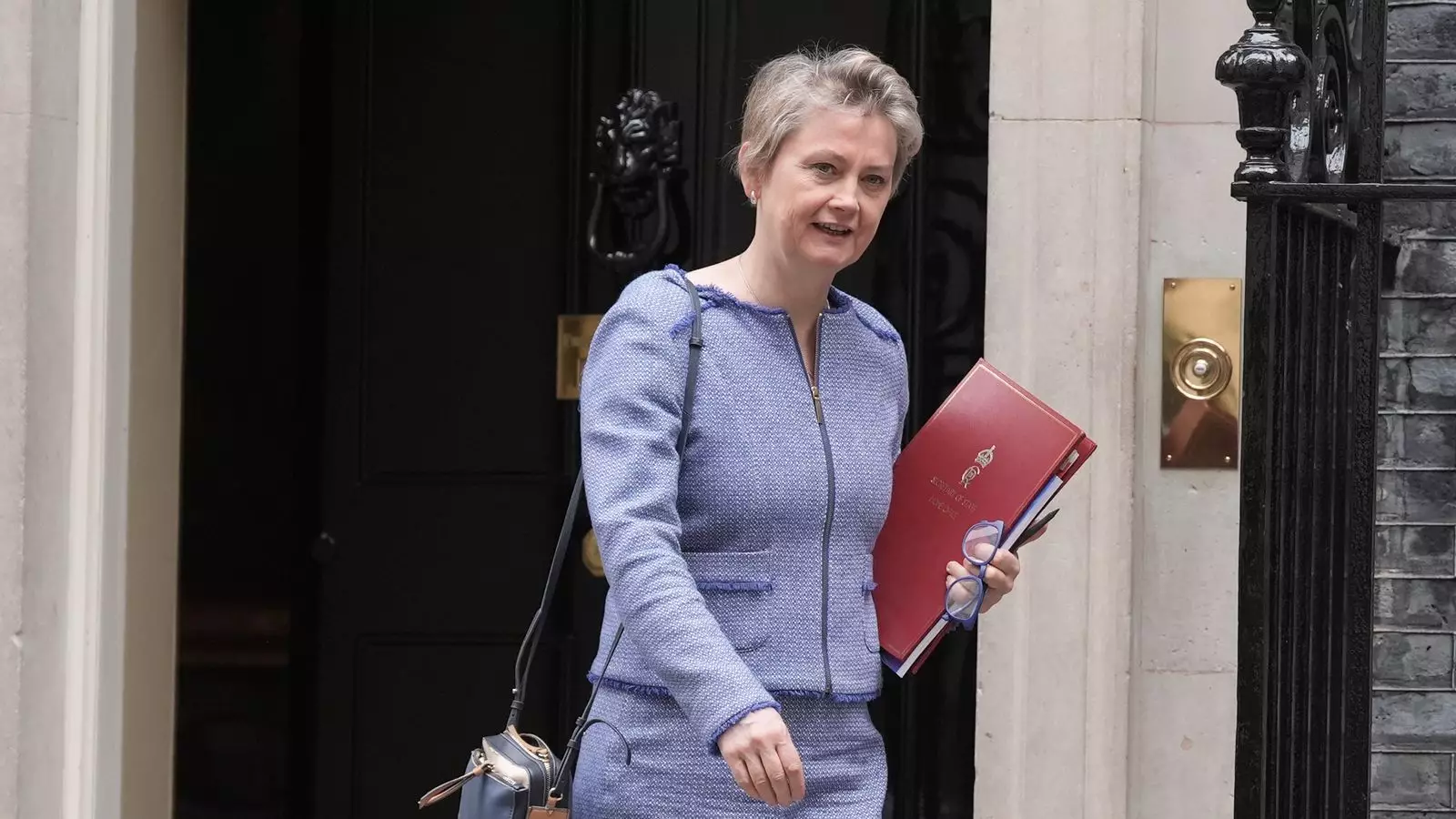In recent political discourse, there’s a recurring narrative: a bold, assertive plan to curb illegal crossings by implementing a “one in, one out” system. At first glance, this seems like a pragmatic approach—an attempt to bring order and predictability to a chaotic situation. But a deeper look reveals a disturbing disconnect between the rhetoric and the reality. The UK government openly admits to not having fixed the numbers of migrants to be returned to France, emphasizing instead a trial-and-error process. That acknowledgment exposes a fundamental flaw: the plan’s very foundation is inherently uncertain, making it unlikely to achieve the firm control that officials proclaim. This ambiguity signals a troubling pattern prevalent in immigration policies—an overreliance on vague goals and optimistic projections that risk perpetuating chaos rather than resolving it.
The decision to proceed without definitive figures is not just bureaucratic laziness; it reflects a broader systemic failure to confront the complexity of migration management. When policymakers suggest that numbers will be “increased” or “trialed,” it signals a reactive stance rather than a proactive solution. Without clear benchmarks, the entire initiative risks becoming merely symbolic, a political gesture designed to placate public fears rather than deliver tangible results. Such an approach neglects the intricate social, legal, and logistical realities of migration and underestimates the resilience of criminal smuggling networks that thrive amidst ambiguity.
The Myth of Partnership: Are France and the EU Truly Committed?
The so-called “one in, one out” system hinges critically on trust and cooperation between the UK, France, and the broader European Union. Yet, the claims that discussions have been ongoing with EU members, and that they have shown “support,” ring hollow when scrutinized. The European experience with migration has largely been a story of frustration and disjointed efforts, and the UK’s departure from the EU only aggravated this fragmentation. The EU’s Dublin Agreement, which historically managed responsibility for asylum claims, was bypassed post-Brexit, disabling a cooperative mechanism that could have strengthened border security.
Given this context, it’s naive to believe that a bilateral deal with France alone can solve a problem rooted in broader institutional failures. Macron’s assertion that Brexit created “an incentive to make the crossing” exposes a fundamental flaw: the UK’s withdrawal from EU structures diminished its ability to influence or cooperate effectively on migration policies. Relying on a fragile Franco-British partnership, without the support of a cohesive EU framework, is a gamble that risks further chaos and irregular crossings. The support of EU commissioners may be politically convenient, but it doesn’t replace a meaningful, enforceable collective strategy that addresses root causes, legal pathways, and international cooperation.
The Politics of Deception: Is this Really a Solution or Just a Political Smokescreen?
Here’s where the real cynicism emerges: the deal is presented as a decisive, almost heroic effort to control borders. Yet, beneath the surface, it is riddled with contradictions and questionable assumptions. Macron claims that Brexit removed the EU’s responsibility for migrants, incentivizing crossings. Meanwhile, domestic politicians in the UK seem content to frame the issue as a crisis of inadequate border controls, rather than recognizing the broader failures of global migration governance.
Yvette Cooper’s careful avoidance of labeling the surge of crossings as a “lie” suggests a reluctance to confront uncomfortable truths about global displacement and systemic failures. Her acknowledgment that criminal gangs will manipulate any system, regardless of the rules, underscores a troubling reality: tough rhetoric does little to dismantle deeply entrenched smuggling networks. These gangs are fueled by profit and desperation, not policy tweaks. Any reasonable assessment should question whether returning “50 migrants a week” to France—an admittedly vague and flexible number—will have a meaningful impact or merely act as a symbolic gesture.
The political dance surrounding this deal also reveals an underlying desire for short-term popularity rather than long-term solutions. Policymakers are falling into the trap of band-aid fixes that appease the media and the electoral base but do little to address the root causes of migration—conflict, poverty, climate change, and global inequality. Until those fundamental issues are confronted and addressed through genuine international cooperation, such “deals” will remain superficial and ultimately ineffective.
In the end, the promise of a manageable migration system is an illusion propagated by politicians eager to avoid accountability for the systemic failures that lead to these crises. The reality is a complex web of legal, geopolitical, and humanitarian challenges that cannot be solved with rushed agreements and vague targets. True reform requires honest acknowledgment of these complexities—and a willingness to invest in sustainable, humane solutions—not just media-friendly soundbites.

